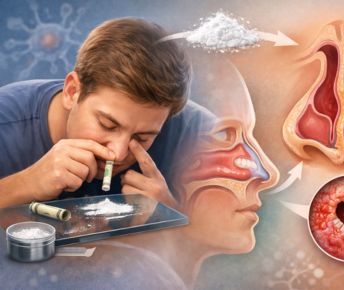Clients referred to Samarpan Recovery may transition from primary psychiatric care to a more holistic and integrative treatment plan. The change may seem disorienting or destabilizing for clients with severe mental health symptoms. Collaboration between members of the care team is essential to ensuring a smooth transition.
According to the National Institute of Mental Health (NIMH), "Choosing the right treatment plan should be based on a person's individual needs and medical situation." Samarpan Recovery uses evidence-based treatment methods like therapy to help clients recover from substance use disorder (SUD) and co-occurring mental health issues.
The Difference Between Psychiatric Care and Therapy
Psychiatrists are medical professionals trained to diagnose and treat mental health disorders. Psychologists and counsellors study emotional and behavioural traits and cognitive processes. Both professions treat mental health disorders and SUD. However, they have different focuses, tools, and areas of expertise.
Psychologists do the following:
- Screens and diagnoses individuals with potential mental health issues
- Prescribes subscription medication
- Treats emotional and behavioural issues using a variety of methods
- Rules out medical causes of emotional and behavioural problems
Therapists have some overlapping services and often do the following:
- Confirm diagnosis and monitor the recovery progress
- Provide insights into emotional and behavioural issues
- Help clients identify potential problems and find healthy solutions
- Provide skill development and mental health education
- Focus on helping clients develop autonomy and greater day-to-day function
Psychiatrists and therapists help clients heal and recover from substance misuse and mental health disorders. Psychiatric techniques often rely on medication, while therapists use talk therapy, experiential therapy, or trauma-focused care to help clients achieve and maintain sobriety and positive mental health.
Transitioning Between Psychiatric Care and Therapy
Some people cannot get all the support they need from psychiatric care. Therapy provides them with additional exercises, skills, and techniques that support their sobriety and mental health.
According to BMC Health Services Research, "Mental health care transitions are increasingly prioritized given their potential to optimize care delivery and patient outcomes, especially those focused on the transition from inpatient to outpatient mental health care." Many clients with SUD choose to transition from residential psychiatric facilities to outpatient programs that utilize evidence-based psychotherapy and alternative holistic therapies.
Clients transitioning out of primary psychiatric care often focus on the following areas during therapy:
- Developing life skills
- Communicating effectively
- Healthy forms of self-expression
- Identifying and processing emotions
- Trauma recovery
- Family therapy
- Mental health education
Psychiatric and psychological care helps clients accept their circumstances and build a foundation for healing and personal growth. Most clients with SUD benefit from holistic care, integrative treatment, and a personalized approach to recovery. The combination often ensures the best possible outcome.
Benefits of Holistic Treatment
The transition from one primary care method to another often goes more smoothly when clients understand the importance of the change.
Some of the benefits of holistic care include the following:
- The care team considers the person, their preferences, and needs instead of focusing only on the disease
- There is a greater emphasis on prevention and finding ways to manage symptoms or side effects
- The techniques and skills clients learn will improve their overall wellness, functionality, and quality of life
Psychotherapy is an important tool treatment centres use to help clients cope and manage stress during holistic treatment.
What to Expect From Therapy Sessions?
Clients who have never attended a therapy or counselling session may feel uncomfortable initially. Psychiatric sessions are often very different and focus on the following:
- Observing the client's current mental state
- Diagnosing emotional or behavioural issues
- Getting to know the client better to find ways to address their SUD and any co-occurring mental health issues
Therapy is a more personalized experience. During therapy sessions, clients often do the following:
- Talk about how they feel
- Learn to identify and process emotions
- Discuss how close relationships
- Find healthy solutions to emotional and behavioural problems
- Practice mindfulness, relaxation, and deep breathing exercises
- Use various tools like writing to express themselves
- Go through mental health worksheets
In some cases, clients have "homework" between therapy sessions which may involve journaling or other activities.
What Is Integrative Psychiatric Treatment?
Integrative psychiatric care uses a range of personalized treatments and therapies to address all current and underlying issues. The care team considers anything that might affect a client's recovery, including:
- Family dynamics
- Home environment
- History of substance misuse or relapse
- Family history of SUD or mental health issues
- Mental state
- The severity of symptoms and side effects
- Any co-occurring physical issues like disabilities or illness that may require accommodation
Integrative care allows psychiatrists and therapists to collaborate while assisting clients with their recovery.
Choosing the Right Treatment Options
Clients should have a say in their own treatments and what programs they participate in during recovery. SUD is a complicated issue; rehabilitation programs work best when clients feel engaged, motivated, and confident in their ability to heal from the disorder.
Therapy can help clients improve self-confidence and self-efficacy, lowering the risk of relapse and improving mental health. Samarpan Recovery helps clients and their families choose the best treatment plan.
Clients often respond positively to psychiatric interventions and prescription medication. However, some clients may need psychotherapy and other therapeutic services to help them achieve and maintain sobriety. In some cases, clinicians at primary psychiatric facilities may refer clients to Samarpan Recovery and other treatment centres that provide a holistic approach to care. We ensure every client has a personalized treatment plan and continuing care support to help them maintain the positive routines they establish during treatment. Our facility offers a continuum of care that allows clients to work with the same team throughout their recovery. To learn more about the methods of therapy and the programs we offer, call us today at +91 81809 19090.
























 Yes, many offer serene environments and solid therapeutic frameworks. However, quality varies, so it’s essential to research accreditation, staff credentials, and therapeutic depth.
Yes, many offer serene environments and solid therapeutic frameworks. However, quality varies, so it’s essential to research accreditation, staff credentials, and therapeutic depth.




